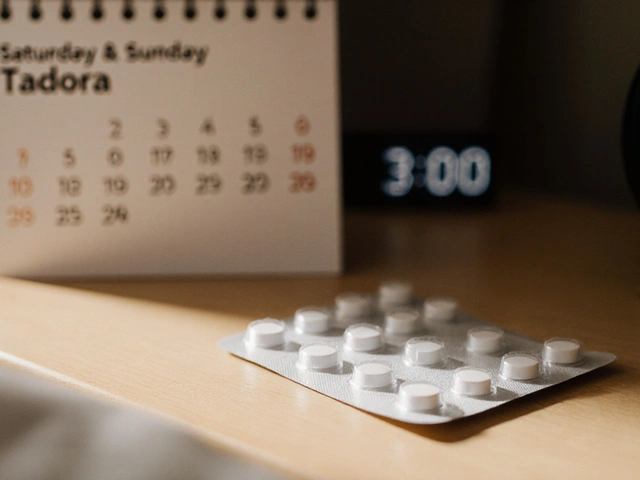Graves' disease: what you need to know now
If you’ve heard the name Graves' disease and wonder what it really means, you’re in the right spot. It’s an autoimmune condition that makes your thyroid work overtime, pumping out too much hormone. The extra hormones speed up many body functions, which can feel like a nonstop roller‑coaster. Knowing the signs, how doctors figure it out, and what you can do each day makes a huge difference.
Common symptoms and how they show up
Most people first notice a faster heartbeat or palpitations. You might feel shaky, sweat more, or have trouble sleeping. Weight loss despite a normal appetite is another red flag. The eyes can also get involved – they may look bulgy or feel dry, a symptom called ophthalmopathy. Some folks get a swollen neck because the thyroid itself grows larger. If any of these sound familiar, it’s worth getting a blood test to check thyroid hormone levels.
Treatment choices and everyday management
Doctors usually start with medication that blocks hormone production. The most common pills are methimazole or propylthiouracil. They’re cheap, work well, and most patients feel better within weeks. If meds don’t help or cause side effects, radioactive iodine can shrink the overactive thyroid. In a few cases, surgery is the answer, especially if a big goiter is pressing on the windpipe.
Beyond prescriptions, lifestyle tweaks help keep symptoms in check. Aim for balanced meals with enough calories – losing weight too fast can make the heart feel worse. Limit caffeine and alcohol, which can amplify jitteriness. Regular, moderate exercise (like walking or yoga) improves mood and supports heart health, but avoid high‑intensity workouts if you’re still shaky.
Eye problems need special care. Warm compresses, lubricating drops, and wearing sunglasses can ease discomfort. If eye swelling gets severe, an eye doctor may suggest steroids or even surgery. Keeping stress low is also key; stress can flare up the immune response, making symptoms worse.
Follow‑up appointments are a must. Your doctor will check hormone levels every few weeks at first, then spread out as things stabilize. If you notice new symptoms – like a faster pulse or new eye changes – call the office right away. Adjusting the dose early prevents bigger problems later.
Living with Graves' disease isn’t a life sentence. With the right meds, a few daily habits, and regular check‑ins, most people get back to a normal rhythm. Keep an eye on how you feel, stay in touch with your healthcare team, and don’t hesitate to ask questions. You’ve got the tools to manage this condition, one step at a time.

Selenium for Graves’ Disease: Evidence, Dosage, Safety, and Who Benefits
Does selenium help in Graves’ disease? Clear, evidence-based guidance on when it helps (especially eye symptoms), safe doses, forms, risks, and practical steps.
Aug 22 2025




